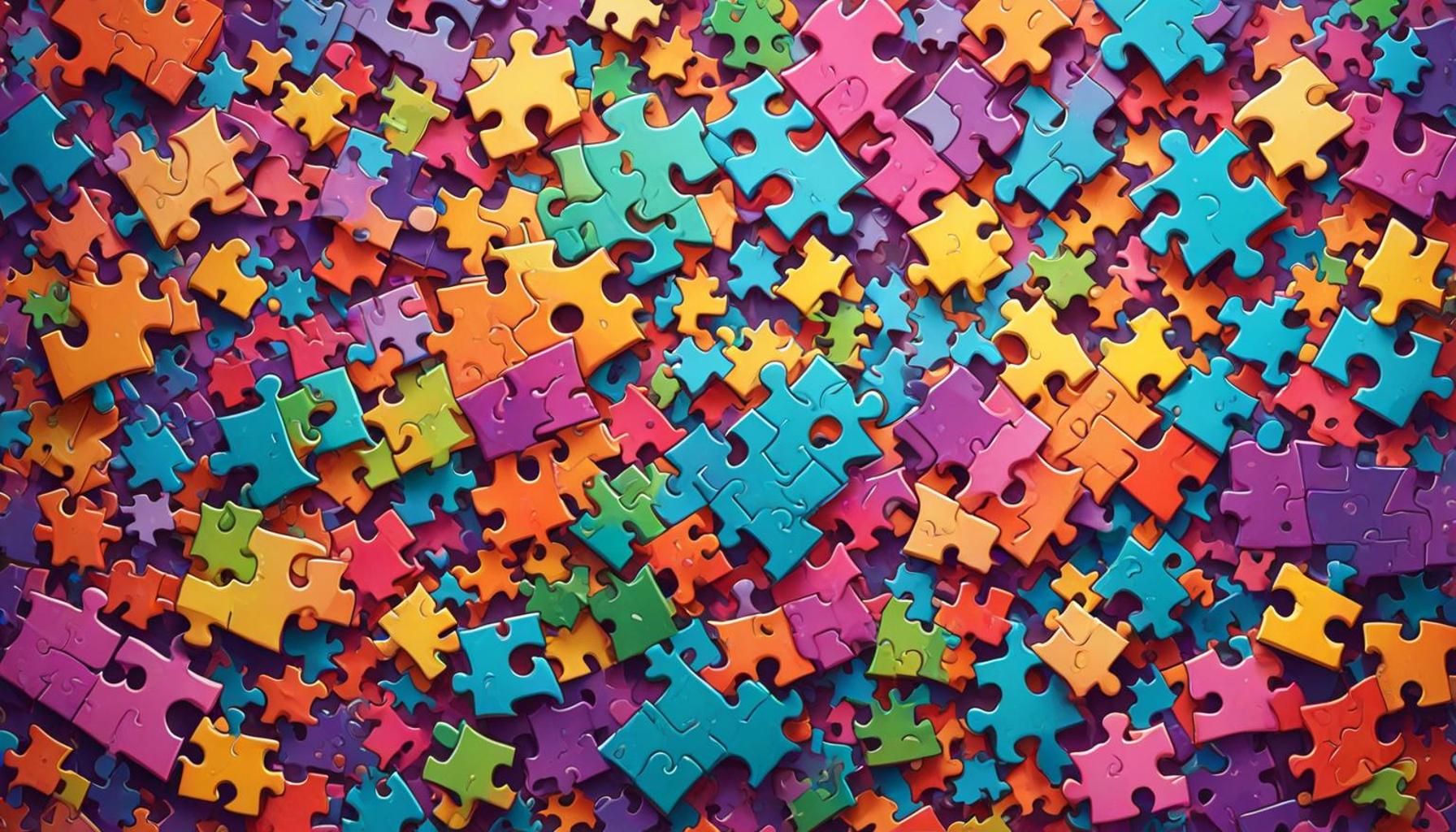Unlocking Corporate Success Benefits of Mind Games in the Workplace

The Impact of Mind Games on Workplace Efficiency
In today’s competitive business landscape, organizations are constantly on the lookout for innovative ways to boost productivity and foster collaboration. A fascinating solution lies in the realm of mind games—strategic activities that stimulate critical thinking, creativity, and teamwork. As Nigerian businesses grow and adapt to a rapidly changing environment, incorporating these games into the workplace may provide the edge needed for long-term success.
Mind games can offer numerous benefits in the workplace, including:
- Improved problem-solving skills: Engaging in cognitive challenges enhances employees’ ability to navigate complex situations. For instance, team-building exercises like escape rooms can foster strategic thinking and innovation, as employees must consider various angles to succeed in a limited timeframe.
- Increased employee engagement: Fun activities promote a lively atmosphere, leading to higher job satisfaction. Companies like Andela, a pioneer in IT talent growth, have recognized the power of incorporating creative games, ensuring their teams remain motivated and interactive.
- Strengthened team dynamics: Collaborative games encourage communication and trust among team members. A study by Google revealed that psychological safety and open communication were essential for team productivity—elements easily enhanced through playful interactions.
In Nigeria, as businesses thrive in various sectors, integrating mind games can not only keep teams motivated but also yield remarkable results. **Companies that adopt these strategies often witness:**
- Higher retention rates: Empowered employees are less likely to seek opportunities elsewhere. This is crucial in a competitive job market, especially in Nigeria, where talent retention remains a challenge.
- Enhanced creativity: Unique thinking leads to innovative solutions and processes. For example, tech startups in Lagos that prioritize team games often experience breakthroughs in product development, as employees feel free to express original ideas.
- Better adaptability: Teams become more agile in responding to changing market demands. Mind games can simulate real-world scenarios, enabling teams to practice adaptability without the risks involved in actual business situations.
Discovering the profound impact of mind games can be the key to unlocking corporate success in Nigeria’s evolving business environment. This article will delve into practical applications and success stories that illustrate how playing together can lead to thriving workplaces. By fostering a culture of collaboration and creativity through mind games, Nigerian businesses can not only improve workplace dynamics but also positively influence their overall performance and profitability.

As companies start to embrace these engaging methods, a cultural shift may occur, positioning Nigeria’s labor market ahead of the global curve. The potential for improved communication, creativity, and problem-solving skills can lead to innovation that resonates throughout the industry. With Nigeria’s unique challenges and opportunities, mind games might just be the stepping stone to redefining what success looks like in the corporate world.
SEE ALSO: Click here to read another article
Revolutionizing Employee Collaboration Through Mind Games
As businesses in Nigeria seek to enhance employee collaboration, mind games are proving to be a pivotal component of fostering effective teamwork. These interactive experiences not only provide amusement but also serve as practical learning tools that can yield tangible benefits for organizations. The integration of mind games in the workplace has become more than just a trend; it is now recognized as a strategic approach to unlocking corporate success.
The key to understanding the benefits of mind games in the workplace lies in their ability to cultivate an environment where creativity and collaboration thrive. Beyond just having fun, employees are invited to engage in activities that challenge their intellect and problem-solving skills. Here are several ways in which mind games can revolutionize employee collaboration:
- Development of Critical Thinking: Mind games often require participants to think critically and make decisions under pressure. This mirrors real-world business scenarios where quick thinking and adaptability are crucial. Participating in such activities helps employees hone their analytical skills, preparing them to address unexpected challenges more effectively.
- Building Trust and Communication: Engaging in collaborative games fosters open communication and helps build trust among team members. For example, trust falls or team-based scavenger hunts require members to depend on one another, strengthening their interpersonal bonds. This trust translates into greater communication in the workplace, ultimately enhancing overall productivity.
- Encouraging Diversity of Thought: Mind games often bring together employees from different departments and backgrounds, promoting diversity in thought. By encouraging unique perspectives, organizations can drive innovative solutions that might not emerge in a more siloed environment. This diversity can be particularly impactful in companies operating in Nigeria’s vibrant but complex market, where varied insights can lead to significant competitive advantages.
Furthermore, companies that incorporate mind games into their culture often find that the alignment of fun and productivity leads to a more cohesive work atmosphere. As teams bond over playful experiences, they discover methods to communicate more effectively about their work-related tasks, ultimately improving their project outcomes.
Additionally, the need for agility in today’s business environment is more significant than ever. Mind games can simulate real-life challenges, enabling teams to practice their responses in a controlled and safe setting. This ability to adapt and react faster to changes can be a game-changer for companies aiming to thrive in Nigeria’s dynamic economic landscape.
In conclusion, the potential of mind games to transform workplace dynamics cannot be overstated. As Nigerian businesses strive for unlocking corporate success, the strategic use of mind games can serve as a foundation for building a workforce that is not only equipped to tackle challenges but also embraces collaboration with enthusiasm. The incorporation of these engaging methods has the potential to lead to remarkable changes in both the culture and productivity of organizations across the country.
| Advantage | Description |
|---|---|
| Enhanced Problem-Solving Skills | Engaging in mind games stimulates critical thinking, allowing employees to tackle issues creatively and efficiently. |
| Boosted Team Collaboration | Mind games promote communication and foster a sense of community among team members, leading to improved project outcomes. |
| Increased Employee Engagement | Participating in fun and challenging mind activities keeps employees motivated and connected to their work, reducing turnover rates. |
| Stress Reduction | Engaging in playful mental activities can serve as a form of stress relief, providing a break from daily work pressures and fostering a positive work environment. |
The integration of mind games within corporate structures is not merely a trend; it is becoming essential for companies aiming to thrive in a competitive landscape. By implementing these activities, organizations unlock a plethora of benefits, enhancing overall workplace dynamics and productivity. Whether through sharpened problem-solving abilities or improved teamwork, the advantages are multi-faceted and contribute substantially to corporate success. Additionally, fostering an engaging and enjoyable workplace culture through mental challenges leads to higher employee satisfaction and retention, ultimately benefiting the bottom line. For businesses striving for innovation, exploring the potential of mind games could be key to unlocking remarkable success.
CHECK OUT: Click here to explore more
Enhancing Problem-Solving Skills Through Competitive Engagement
In addition to the collaborative benefits, mind games offer an unparalleled avenue for enhancing problem-solving skills among employees. These games often emulate real-world challenges, compelling individuals to utilize strategic thinking and creativity to devise solutions. For instance, puzzle-solving games or simulation scenarios can require teams to navigate complex obstacles, encouraging innovative thinking that translates directly into their day-to-day roles.
Nigeria’s fast-paced economic environment demands a workforce that is continually adapting and innovating. In this context, engaging employees in mind games that challenge their intellect can lead to significant improvements in their abilities to tackle emerging issues. Research indicates that organizations that prioritize critical thinking and problem-solving training experience a notable uptick in employee efficiency, with reports showing a potential increase of up to 25% in productivity.
Boosting Employee Morale and Motivation
The implementation of mind games also plays a critical role in elevating employee morale and motivation. In many corporate settings, monotony can stifle enthusiasm, leading to disengagement. However, introducing engaging mind games into the workplace can rejuvenate an employee’s passion for their work. When employees feel invigorated and excited, their drive to contribute effectively to team goals increases.
For example, companies that have organized mind challenges during routine meetings report a considerable rise in participation and enthusiasm. Such activities not only break the ice but also foster a sense of belonging among team members. This sense of community ultimately translates into a more engaged workforce, which is crucial for businesses aiming to retain top talent in Nigeria’s competitive job market.
Attracting and Retaining Talent
In an age where top talent is increasingly selective about their workplace conditions, the use of mind games as part of a company’s culture can be a decisive factor in attracting and retaining skilled employees. Innovative organizations that incorporate games into their professional environment show potential candidates that they prioritize engagement and creativity. For example, companies in Lagos that integrate problem-solving tournaments or gamified training sessions not only enhance their workplace culture but also draw in individuals eager to be part of a stimulating environment.
Furthermore, organizations that encourage playful competition may experience reduced turnover rates. A Gallup poll revealed that employees experience a 2.6 times greater likelihood of being engaged in their roles when working in a fun and empowering atmosphere. This engagement can lead to increased loyalty to the company, reducing the costs associated with high employee turnover.
Fostering Emotional Intelligence
Perhaps one of the most underrated benefits of mind games is their potential to foster emotional intelligence (EQ) within teams. Through interactive activities, employees begin to recognize and understand their emotions as well as the emotions of their colleagues. This heightened awareness leads to improved communication, empathy, and conflict resolution skills.
In Nigeria, where teamwork is essential in navigating complex market challenges, enhancing emotional intelligence through mind games can have a profound impact on team dynamics. When employees understand one another’s strengths and weaknesses, they are more likely to collaborate effectively, leading to better project outcomes and stronger business relationships.
As the emphasis on building more cohesive teams grows, organizations in Nigeria that invest in mind games will undoubtedly find themselves at the forefront. By fostering collaboration, problem-solving abilities, morale, and emotional intelligence, these companies are not just playing games; they are laying the groundwork for unlocking corporate success in a rapidly evolving workplace landscape.
CHECK OUT: Click here to explore more
Conclusion: Unlocking Corporate Success Through Mind Games
In a landscape where innovation and adaptability are paramount, mind games in the workplace are emerging as a formidable tool for unlocking corporate success. By fostering collaboration, enhancing problem-solving skills, boosting morale, and nurturing emotional intelligence, organizations can cultivate a resilient and engaged workforce. In Nigeria’s fast-evolving market, where competition is fierce, the shift towards playful yet strategic engagement could mark the difference between stagnation and sustained growth.
As companies increasingly seek to attract and retain top talent, implementing mind games presents an opportunity to showcase a vibrant corporate culture that emphasizes creativity and teamwork. The positive ripple effects of such initiatives not only lead to higher employee satisfaction and loyalty but also translate into improved productivity and performance outcomes. The statistics speak volumes: organizations that embrace innovative training methods have reported a potential 25% increase in productivity, a game-changer in enhancing their overall efficiency.
Ultimately, securing a competitive edge in today’s corporate climate goes beyond traditional skill development; it’s about creating an environment where employees feel valued, motivated, and excited to tackle challenges. By making mind games a core component of their strategy, Nigerian companies can elevate their operational excellence while nurturing a culture of continuous learning and collaboration. As the journey towards corporate success unfolds, the benefits of mind games in the workplace will undoubtedly play a crucial role in redefining how organizations engage with their most precious asset—their people.


